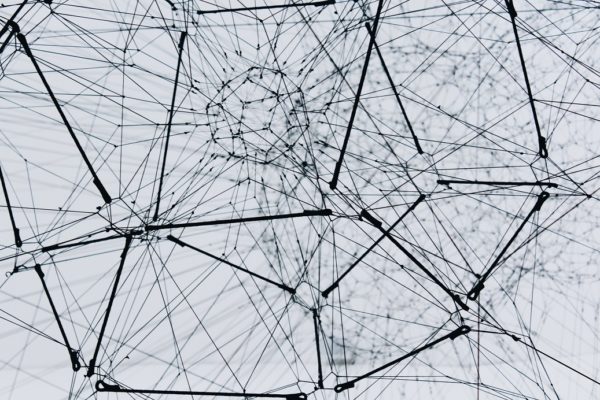I’m not sure if this has been making headlines in the U.S. (though I read it’s being discussed on Reddit), but in Japan, the news about Cleveland-Cliffs’ CEO criticizing Japan has certainly caught attention. I’d like to share my personal thoughts on the matter.
The acquisition of a major domestic company by a foreign firm often becomes a political issue in Japan as well, so I can easily imagine what’s happening in the U.S. right now.
In Japan, there was public shock when Sharp was acquired by the Taiwanese company Foxconn. More recently, there was a case where Nissan was nearly acquired by Foxconn, but when Nissan rejected the deal, Honda stepped in as a potential buyer. While the outcomes in these cases may differ, I think the situation with U.S. Steel, Nippon Steel, and Cleveland-Cliffs has some similarities.
I feel that the fact both companies have their respective countries’ names—Nippon (Japan) and U.S.—in their names makes this issue even more sensitive.
This issue has already sparked emotional debates that feel somewhat out of place in the business world, such as Nippon Steel’s chairman openly criticizing President Biden by name. Now, with recent statements from Cleveland-Cliffs’ CEO, it seems the situation has escalated even further.
In Japan, there’s a phrase used to describe the weak who survive by clinging to the powerful—”goldfish poop.” I believe Japan is essentially the “goldfish poop” of the United States.
Nowadays, even individuals in Japan are using the country’s tax-free investment program (NISA) to scrape together funds from their living expenses to invest in U.S. stocks and mutual funds. This reflects it’s likely why Nippon Steel chose to invest not in East Asian companies, where extreme aging and declining birthrates make the future uncertain, but in reliable American businesses instead.
After losing the war, the Germans may have reflected on the fact that they started the war. However, I think the Japanese reflected instead on the fact that they defied the United States.
Perhaps Lourenco, being from Brazil, doesn’t fully understand that this mindset in Japan has remained unchanged throughout history. Or maybe he does understand but deliberately chose to express himself that way. Either way, I think it was a poor move. Sure, acquiring rival companies at a low cost would be ideal, but judging from the reactions within the U.S., it seems to have backfired.
アメリカ本国でニュースになっているかわからないが(redditでは話題になってそう)日本ではニュースになったCleveland-Cliffs CEOの日本批判ですが、個人的に思ったことを書きます。
自国の有名企業が海外企業に買収されることに対する抵抗感が政治的な争点になることは日本でもよくあることなので、アメリカで起こっていることはだいたい想像ができます。
日本でもシャープが台湾企業の鴻海に買収されたときは世論に衝撃が走りましたし、最近も日産が鴻海に買われそうになってそれを日産が拒んだらホンダが買収に動いたということがありましたが、予測される結末は違えどUSスチールと日本製鉄とCleveland-Cliffsの状況に似ていると思ってます。
これまでも政治の話になってしまいそこそこビジネスにそぐわない感情的な議論が起こっていますが(日本製鉄の会長がバイデン大統領を呼び捨てで批判したり)、Cleveland-Cliffs CEOの発言でもはやさらに問題が大きくなった気がします。
Cleveland-Cliffs CEOのLourenco氏は”You did not learn anything since 1945″と発言しましたが、むしろ逆で80年経った今もどんなことがあってもアメリカは世界の中心で、アメリカの付き従わなければ日本の存続は実現しないと小学校、中学校から教え込まれている日本人は、アメリカの戦敗国であることを日本のアイデンティティとして捉えているわけで、だからどんどん縮小することが決まっている国内経済からできるだけアメリカに向けて投資しているわけです。
今や個人も日本の非課税投資制度(NISA)を使って生活費から資金を捻出してアメリカ株やアメリカの投資信託を買っているわけで、だから日本製鉄の投資先も極度の少子高齢化で先が見えない東アジアの企業ではなく、信じられるアメリカの企業だったのだと思います。
戦争に負けて、ドイツ人は戦争を起こしたことを反省したのかもしれませんが、日本人はアメリカに歯向かったことを反省したのだと思います。
それはどんな時代も変わらないことを、Lourenco氏はブラジル出身だから知らないのか、知っているのに敢えてああいう表現をしたのかわかりませんが、どちらにしても悪手だったかなと思います。
もちろん安くライバル企業を買収できればいいに越したことないですが、アメリカの本国での反応を見る限り逆効果だったのではないでしょうか。




Comments